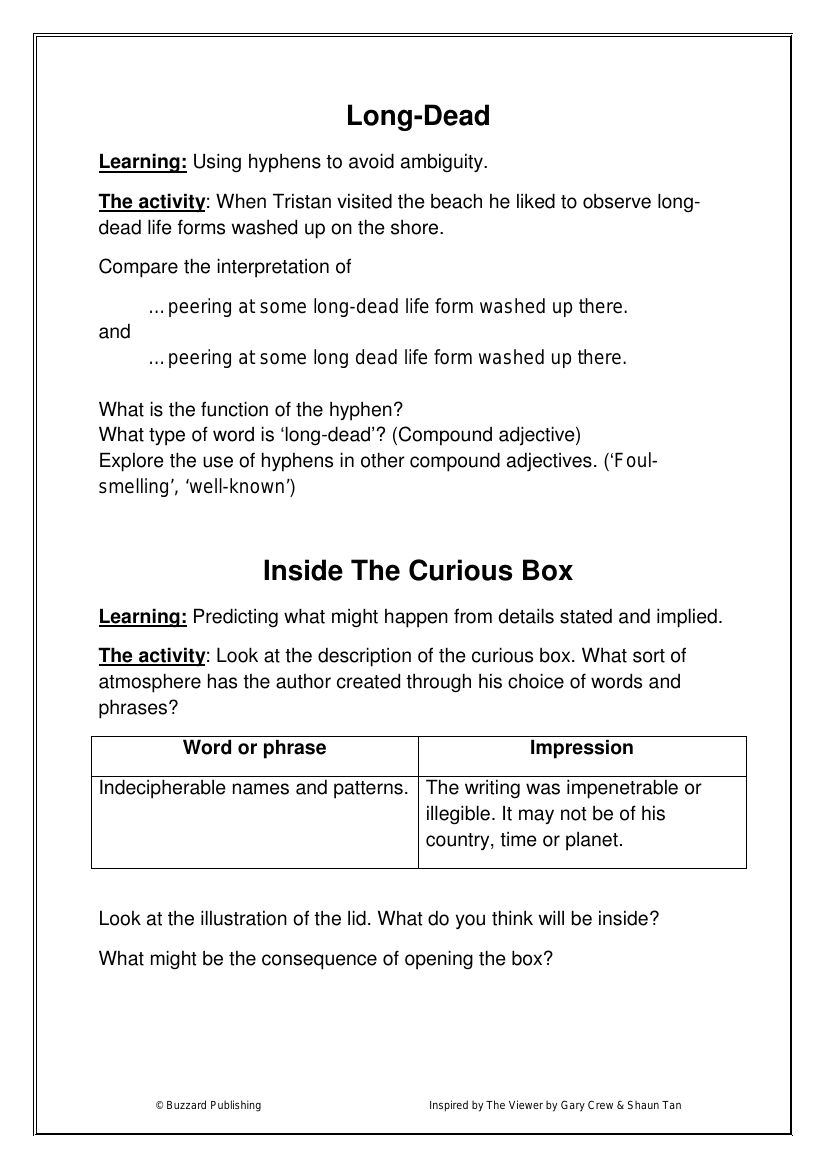Inspired by: The Viewer - Week 2

English Resource Description
In a lesson focused on grammar and vocabulary, students learn about the importance of hyphens in avoiding ambiguity in the English language. The activity centres around the phrase "long-dead," highlighting how a hyphen can change the meaning of a description. Students are tasked with comparing the phrases "long-dead life form" and "long dead life form," to understand how the hyphen clarifies that the life form has been dead for a long time, rather than being a long life form that is now dead. The hyphen in "long-dead" acts as a connector, turning two words into a compound adjective. Further exploration of hyphens is encouraged through examples like "foul-smelling" and "well-known," which similarly form compound adjectives that provide clear and precise descriptions.
Another aspect of the lesson delves into prediction and inference skills through the analysis of a mysterious box described in a narrative. Students are invited to consider the atmosphere created by the author's choice of words, such as "indecipherable names and patterns," which suggests that the box's origins are unknown and possibly otherworldly. They are then prompted to use their imaginations to hypothesise about the contents of the box and the potential consequences of opening it. In a separate activity, students examine the thematic link between various objects found inside the box, all connected to sight and vision, and are encouraged to write a continuation of the story, describing a dream in which the box's owner delivers a message to Tristan. The narrative exercise extends to using the perfect form of verbs, guiding students to describe events using past perfect tense combined with the word "just" to express actions that occurred at a specific time in the past, maintaining the narrative's tone.
